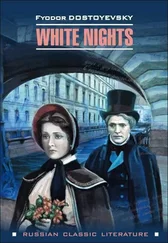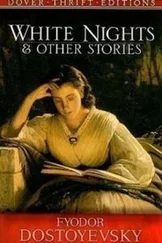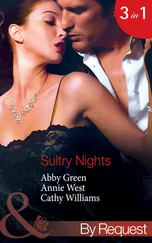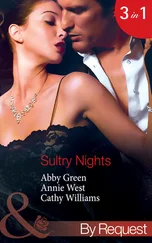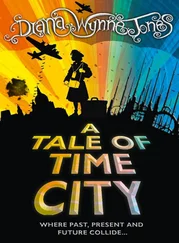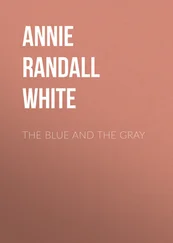Annie DeWitt
White Nights in Split Town City
I wonder, now, only when it will happen,
when the young mother will hear the
noise like somebody’s pressure cooker
down the block, going off. She’ll go out into the yard
holding her small daughter in her arms,
and there, above the end of the street, in the
air above the line of trees,
she will see it rising, lifting up
over our horizon, the upper rim of the
gold ball, large as a giant
planet starting to lift up over ours.
She will be standing there in the yard holding her daughter,
looking at it rise and glow and blossom and rise,
and the child will open her arms to it,
it will look so beautiful.
—“When” by Sharon Olds
For Diane Williams and Alan Ziegler,
Thank you for opening the doors to the house
and showing me inside.
With love to Gian,
for taking the gamble.
To my sister, who witnessed it all with me.
The car appeared to descend from the sky like the old gray pigeons that skirted the power lines tracing the upheaval of the mountain. Fender, the youngest of the abandoned Steelhead brothers, was sprawled out horizontal over-top of the Jeep, a dare the older boys had put him up to. Maybe he was shackled at the ankles. Maybe he was relying on his own grip. It looked as though his brothers had strapped him there, turned the nose of the 4x4 down the trail, and put the vehicle in neutral. The Jeep had gained enough speed by the time it reached the turnoff onto our little road that its body absorbed any imperfections in the macadam and it surfed over the frost heaves and skids of gravel, catching a bit of warm summer air. Mother stood beside me. We were on our way out to the garden. We stared at the back of Fender’s head as it hurtled toward us. The wind took his shirt and its colors billowed up around his face.
Liden, the eldest Steelhead brother, was at the wheel. One of his arms rested across the horn. The other straddled the shoulders of a young girl in a neon tank. The rest of the boys were in the back tending the beer. A long-haired kid tossed cans of Miller High Life out the rear, exploding them over the road. The gold of a can flared in the sunlight before the aluminum burst from the pressure.
This was the summer of 1990. The Berlin Wall fell. The Hubble Space Telescope launched. Mandela was released from prison. Microsoft released a disk, which Father brought home from work, called Windows. Mikhail Gorbachev — The Big Red Splot, my sister Birdie called him — was elected. In school we gathered our pennies to save the whales from Exxon Valdez. Ryan White died of AIDS—“What’s AIDS?” Birdie said—“It’s a disease of the blood which came from a flight attendant,” Mother said over breakfast as Birdie and I discussed the image of the missing girl up the street that plagued the side of our milk cartons. McDonald’s had a sign in their window: Moscow! Shenzhen! Father read to us from The Whole Earth Catalog. Mother framed a photo called “The Pale Blue Dot,” which hung over the television. On weekends we watched pirated VHS copies of The Big Chill . When Mother turned up the radio real loud and sang “I Heard It Through the Grapevine,” I wondered what the grapevine was and what it was they had heard through it. The night Billy Crystal announced Dances With Wolves beat out Ghost for Best Picture, Father said the whole world had gone soft. “That’s your Dad’s girlfriend,” Mom said to Birdie and I, pointing at Demi Moore on the screen. “I love that you get cold when it’s 71 degrees out,” Dad said, dramatically, taking Mother in his arms and reenacting his favorite scene from When Harry Met Sally . “I came here tonight because when you realize you want to spend the rest of your life with somebody, you want the rest of your life to start as soon as possible.”
“Look around you,” Mother said, motioning to Birdie and I and the house in the background. “It already started.”
At night, Birdie and I ate Hungry Man dinners from TV trays in the Lazy Boy and watched reruns of I Love Luc y and Dick Van Dyke . The future, as I saw it, was predicted by the likes of Jane Jetson and Hulk Hogan. In twenty years we would all be wearing beehives and driving hovercrafts while R2-D2 floated around the kitchen cooking us the morning’s oats. Operation Desert Storm blasted in the background while stay-at-home mothers drove their Honda Accords around newly minted culde- sacs on the other side of town. Farmers sold off old Indian burial grounds while listening to Billy Joel’s “We Didn’t Start the Fire” and Janet Jackson’s “Rhythm Nation.” Every night the man on the news said, “It’s ten o’clock, do you know where your children are?” and Father would laugh, “No. Do you?” For me, the image of Fender Steelhead sprawled out kitelike tethered to the rack of the Jeep was the beginning of some deeper treason. I had never wanted to rescue something in such earnest. I had the feeling this was the moment in life I’d heard Uncle talk about, the one in which fate comes to a halt in the middle of the road in front of you. In such a moment you were outside of your body watching yourself step over a thin white line that represented a wide unforgiving chasm, but in reality looked so small an inkling you almost mistook it for some fissure the wind had drawn in the sand.
I’d buried a hamster once in a box in the yard. It had cracked its leg on the little wheel in its cage and was only half-dead when I found it, hanging mid-flight on its circuit. Uncle put it out on the porch in a small yellow shoebox to finish dying. Every few hours, he went out and shook the box. It took the whole afternoon before there was no more shake in the body. We buried the box off the end of the cement stoop that lined the front of the house. I didn’t know how long it took for an animal to suffocate. Even as we covered the box with dirt, I wasn’t so sure it wasn’t still gasping a little at its own air.
“It’s not like you can just snap the neck,” Uncle had said.
There wasn’t a soul alive or dead that cared whether Fender Steelhead kept his heels on the ground or went flying. For Fender, to fit was the whole of it. He needed to find someway into his brothers’ breed. If it wasn’t the wrestling or the smut or the holes in the wall, it was the flying. The getting pissed and high. The letting go. From the moment I saw him barreling toward me, I knew it would be hard. It would be bitter. There would be that New England fence between us, our feet planted firmly on opposite sides.
The problem was, Fender had already usurped my own cutting loose.
“It’s a shame too,” Mother said of the boys as the Jeep turned the corner.
I stared at the back of Fender’s shirt as the Wrangler sped out of sight.
“You don’t look at people like that,” Mother laughed, cuffing me gently on the back of the head. It was a phrase she often repeated, though I didn’t yet know its importance.
“You don’t look at people like that,” Mother said later that summer.
I recognized the phrase but by then I had lost the memory of its earlier context and felt only the tender surge of familiarity that Mother’s advices sometimes lent.
“Like what?” I said.
“The way you were looking at him. It’s not done at your age. It’s unsightly.”
We were sitting at the table overlooking the window in Otto Houser’s kitchen. Otto had invited Mother, Birdie, and I over for lunch. Father was at work. Granny Olga was down for her nap. Otto wanted to extend his hand back toward Mother’s trust.
Читать дальше
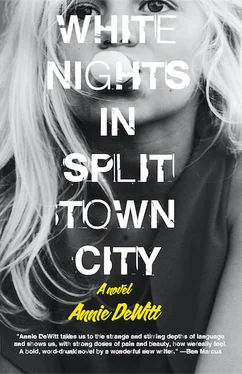
![Элизабет Ленхард - Свидание со смертью[Date With Death]](/books/79651/elizabet-lenhard-svidanie-so-smertyu-date-with-dea-thumb.webp)



